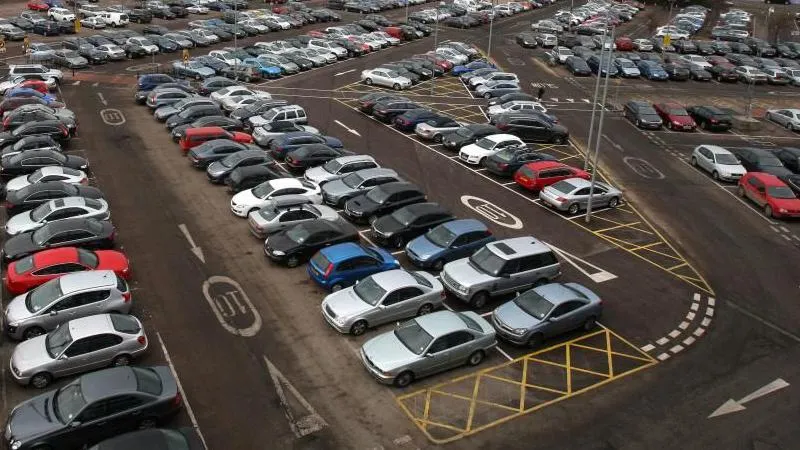Private car parks to have 10-minute 'grace period'
Private car parks are to offer UK motorists a 10-minute "grace period" before they hand out fines.

The measure was announced as part of a new code of practice companies have pledged to implement in the autumn.
Industry trade bodies say the code will also introduce a fairer appeals system and maintain an existing cap on charges.
Motoring organisations say the code "falls far short" of the standards required to protect "innocent" drivers from the "sharks running private car parks" and government legislation is required.
‘Fined 22 times for parking outside my own home’
The code was published by the British Parking Association and the International Parking Community, the two trade bodies representing private car park operators.
It features requirements for a single set of rules for operators on private land, more consistent signage and an "appeals charter" for drivers.
The introduction of a grace period means that every vehicle in a private car park will be given 10 minutes after its parking has expired before a fine is issued.
The code maintains a cap on charges of £100, reduced to £60 if paid within 14 days.
While the industry bodies say they would like the new code to be introduced by October, private parking companies are being permitted a "period of transition" and will only be required to "fully" meet the new standards by December 2026.
'Self-authored code'
Private car parks are managed by private companies and often found near supermarkets or out of town shopping complexes.
They are different to public car parks run by local authorities in town centres, or near parks and open spaces.
Private car parking companies issue charges when vehicles fall foul of their rules and operate a different fining regime to those in place in public car parks.
But private parking businesses have long been criticised by drivers, politicians and motorists' groups for confusing signage, unreasonable fees and aggressive debt collection.
Private parking companies issued 9.7 million tickets to drivers in Britain between April and December last year, according to analysis of government data by the motoring research charity, the RAC Foundation.
An attempted government crackdown on "rogue" operators foundered in 2022 following stiff opposition from private parking companies.
A bill to enable the introduction of a legislation-backed code of conduct received Royal Assent in March 2019.
This legislation - which should have come into force across Britain by the end of last year - included halving the cap on tickets for most parking offences to £50, creating a fairer appeals system, and banning the use of aggressive language on tickets.
But a legal challenge by private parking companies meant the government withdrew the legislation in June 2022.
Mr Cousens said the code of practice was "watered down" and "falls far short of the standards the AA, government and consumer groups have called for across many years".
He said: "This self-authored code doesn't acknowledge the need to cap charges and remove debt recovery fees.
"These elements are desperately needed from a government-backed code to protect innocent drivers from the sharks running private car parks."
Simon Williams, head of policy at RAC, said: "Drivers shouldn't be fooled into thinking this so-called code developed by the private parking industry itself is the same as the long-delayed official private parking code of practice that is backed by legislation.
"This, and only this, will bring an end to the worst practices of some private parking operators and mean drivers - especially those who are vulnerable - are protected from unreasonable fines and debt collectors chasing down payments."
-bbc







